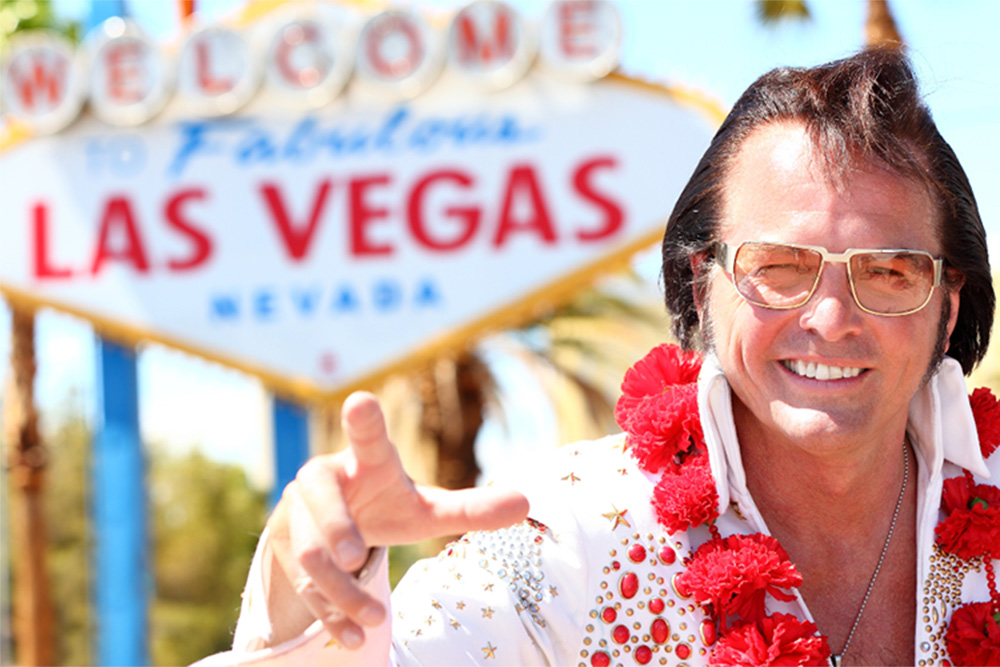Once you register a trademark for your business, how guarded should you be over its usage? The answer would seem like a no-brainer: “Always protect your mark!” But it really depends on the size of your business and how your mark draws its power.
Authentic Brands Group (ABG) – owner of the Elvis trademark catalog along with other stars like Marilyn Monroe and Muhammad Ali – has become a recent example of sudden, aggressive trademark policing. And it may actually work to their disadvantage.
ABG Steps Up Trademark Protection Without Explanation
ABG has owned the Elvis mark and its auxiliaries (like Gladys’ Diner, where the famous Elvis peanut butter and banana sandwich is served) since late 2013. Before and during the time of their ownership, Elvis-themed weddings have been occurring in Vegas, with Elvis impersonators walking couples down the aisle.
ABG recently started to crack down on these Vegas weddings. They have sent cease-and-desist letters to several confused chapels who have been operating for years. Some have already changed the theme of their speedy ceremonies from “Elvis” to generic “rock ’n’ roll.”
ABG has not given an explanation for their sudden pursuit. However, speculators think that the new Baz Luhrmann biopic of Elvis has peaked their hopes for Elvis interest this year. They may be attempting to grab up all the classes of goods and services to capitalize on Elvis.
Why Elvis Impersonators and Not Actors Portraying Elvis?
Nevada’s right of publicity statute comes into play here. The statute requires written consent to portray a person except for certain exceptions, like impersonation in live performances.
This means that shows in which actors play Elvis are not under attack. But a wedding is not considered a live performance. It more likely falls into using Elvis’s likeness for commercial purposes.
How Does This Hurt ABG?
It would seem that ABG has a right to ask for the stoppage of this infringement on Elvis’s likeness. Why would they not want to do this?
ABG is a mammoth LLC, containing brands such as Juicy Couture and Nautica. They are going to primarily profit from licensing one of their many Elvis marks for products, from posters to toasters.
But Elvis died in 1977. He does not have new singles coming out to entice younger generations to buy his records or shirts. You have probably seen Elvis paraphernalia like this in your grandmother’s or parent’s house – but how many younger people are buying Elvis items these days?
That is the pivotal question and argument regarding these new rigid trademark walls. Were Vegas chapels doing ABG a favor by educating younger people about the King of Rock ‘n’ Roll? And will ABG’s stifling kill interest in Elvis, hurting their bottom line?
They may work out licensing agreements with chapels – but chapels may not play ball. We have yet to see how this chapter of the Elvis trademark will be handled. Sometimes it is better to let the small fish swim in order to make the biggest catch.
